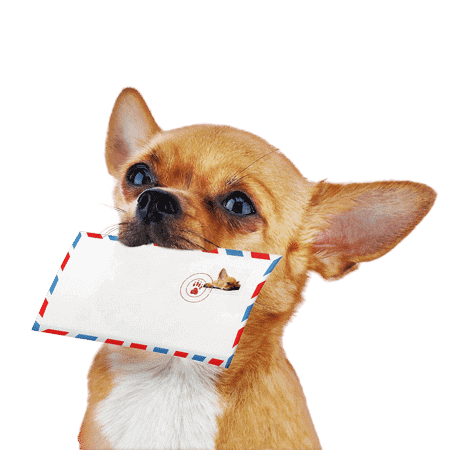We all have at least one anthropomorphism vis-a-vis his dog, and it is a human reflex to try to give meaning to the behaviours of our doggies that we do not sometimes understand at all.
Anthropomorphism: What is it?
According to the dictionary, anthropomorphism is to attribute to an animal or object of human reactions and feelings.
It is quite common in dog owners who see, in the majority of cases, their dog as a child and who then gives it intentions that are in reality only the reflection of their own feelings.
Anthropomorphism is not “dangerous” when one is aware of it and that it does not directly impact the education and socialization of the dog (as for example, give a human name to his dog, put him a coat then that it does not really need it, but knots in the “hair”, etc.).
On the other hand, it is when anthropomorphism becomes a real obstacle to the good educational, physical, intellectual and social development of the dog that it becomes really harmful.
The most common anthropomorphic situations
I propose to list the most common anthropomorphic situations but especially the most dangerous with regard to the true nature of the dog and who impact the relationship between his master and him.
My dog is revenge when I’m absent.
This is certainly the most common and absurd anthropomorphic situation. The number of masters mistakenly think that their dog scoffs Machiavellian plans to pay for them to stay alone at home.
Revenge is actually a vice of the man. Dogs do not have enough intellectual capabilities to develop revenge strategies against their master. And so much better for them elsewhere!
People who assimilate as revenge the destruction of their animal are completely veiled, often not to confess that “perhaps”, lack of expense, boredom or bad education are part of the problems that generate the nonsense made.
This is ultimately not to assume the mistakes made. It is easier to say that one has a dog that has a “rancor” background and that, after all, that’s like that’s his nature, rather than questioning and wondering: Am I doing or what I do not do enough for my dog to come to do so.
To read too: my dog is rancour, my dog is avenged: a myth?
My little dog is too fragile to meet his congeners.
If you have a medium to big template dog, I will put my hand to cut that you have ever crossed a master with a little dog who, at your approach, hastened to wear his town in his arms. I am certain that you have already seen a master walking his small pet dog into a carrying bag or, worse, stroller or baby carrier. Or maybe you even have a small template dog, and you are always afraid of the damage that could lead to an encounter with another dog?
Small dogs are often considered fragile beings that should not be sharp. What a horror of imagining that acute pleasure dog playing in the mud with a more rustic race! But it’s a difference between a small dog and a big dog that is risky because prevent a dog from being a dog: it’s dangerous!
It’s small or big, and a dog needs to meet its congeners! Certainly, meetings must be controlled not to accumulate too negative experiences, but by pity: stop wearing small dogs! They have four legs. Let them use it!
To want to “protect” his little dog from his congeners, we make a dangerous dog because completely disabled. And it is then from this little dog that the others will have to protect themselves. What aside is it?
My dog knows when he made a stupidity.
You come home, and your dog is hiding in a corner or crawls to your feet with his beaten dog look. You know it: he made stupidity and comes to implore you not to scold it.
Well, you have all wrong! This attitude is absolutely not related to a possible request for forgiveness. It is actually a reflex of your dog in response to the habit he has to see you returned to systematically.
Know that experience has been done on this subject to prove that dogs did not react so only when they had made a stupidity. Indeed, that the dog really has made a stupidity or another person or another animal that made this stupidity, his reaction to the return of his master is strictly the same. Thus, it is therefore proven that anthropomorphism causes any damage to the point that the attitude of the master becomes anxiogenic for the animal.
My dog must eat varied.
Cliché much less serious but often noted: the desire of dog owners to diversify the meals of their doggie as they would for themselves.
Prepare cooked dishes for her dog can be a very good thing but pay attention to the reasons why this choice of feeding is made.
Suppose it is for economic concern or to be sure to give good quality food to his dog: either! But if it is only to vary his meals and that he does not get tired of his daily rations: do not waste your time because the dogs absolutely do not have the same demands as us!
In addition, wanting at all costs to cook for his dog asks for a lot of time, on the one hand, but also very good knowledge of the specific needs of his dog, on the quantities necessary but also on what it does not have to absolutely give him. Be vigilant: your dog is not a child, he does not have the same nutrients as we other humans and some foods are toxic!
On the other hand, some owners grow vice by continuing, even after the first puppy development period, to systematically give it three meals a day. It’s a serious mistake, and superchargement generates real health problems in dogs!
Know that it is not mistreating his dog than to give him “only” a meal in the evening. Do not forget that they are dogs! They do not need a wide variety of products or have three meals daily, or even eat five fruits and vegetables a day. And if you are not convinced of it: ask your veterinarian for advice. He will know accurately about the needs of your dog.
My dog smiles when he shows your teeth.
Dogs do not smile to express their joy: they have many other ways to communicate their immediate well-being. It is important to learn how to read and interpret the communication signals of dogs.



